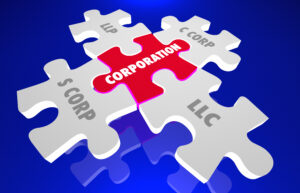Tax Fraud Getting More Advanced – Are You Prepared?
It used to be that tax fraud was fairly cut and dry. Essentially, it involved an individual or company who, for various reasons, tried to purposely fudge on their taxes, either by understating their income or by trying to completely skip out on filing a return. Those practices certainly still exists, despite the IRS’s constant efforts combat them. However, tax fraud as evolved, like everything else involving taxes. What used to be a matter of defrauding the IRS out of money has now turned into a high stakes ploy to cheat the taxman as well as the taxpayer.
Meet the new tax fraud. Now, scammers are not only out to steal money from the IRS, but they are also using other taxpayers to do it. Thus, they are cheating the IRS and they might be cheating you. Scammers use all kinds of tactics to trick people out of their tax refunds, or even worse, steal their identity along with their refunds and any other assets they can get their hands on.
These days, out of all the common tax scams that take place every tax season, a third of them involve some kind of identify theft. As early as 2011 the IRS only warned of one such scam of this type. Times have changed and so have scammers. It got so bad this year that the IRS reportedly received about 12,000 complaints every week regarding a phone scam in which a scammer tried to obtain the recipient’s personal information by posing as an employee of the IRS.
The battle will certainly continue as technology advances and scammers come up with new schemes as a rapid pace. In order to avoid these kinds of scams you can always contact the IRS, as well as a trusted accounting and tax planning firm, like GROCO. We can help you prepare for and avoid getting scammed. Give us a call at 1-877-CPA-2206 or click here to contact us online.
Tax S-corporation
Saving Taxes with an S Corporation An S corporation election allows the shareholders to preserve the benefit of limited liability for the corporate form while at the same time being treated as partners for federal income tax purposes. Ever wondered why so many small businesses operate as an S corporation? Simple. An S corporation saves…
Sec1045 Partnerships
Sec1045 Partnerships This document contains final regulations relating to the application of section 1045 of the Internal Revenue Code (Code) to partnerships and their partners. These regulations provide rules regarding the deferral of gain on a partnership’s sale of qualified small business stock (QSB stock) and a partner’s sale of QSB stock distributed by a…
Sec179 Businessequipment
Updated: 11/12/10 Most new business equipment can be either depreciated over its useful life or expensed immediately under Internal Revenue Code Section 179. The maximum deduction is based on the following schedule for the date in which the tax year begins. Each 1040, whether Single or Joint, is limited to one maximum. 179 expenses passed…
Sec1244 Small Business Stock Sales
Sec1244 Small Business Stock Sales Section 1244 of the Internal Revenue Code, the small business stock provision, was enacted to allow shareholders of domestic small business corporations to deduct as ordinary losses, losses sustained when they dispose of their small business stock. In order to receive this beneficial treatment, the Code prescribes specific requirements for:…



